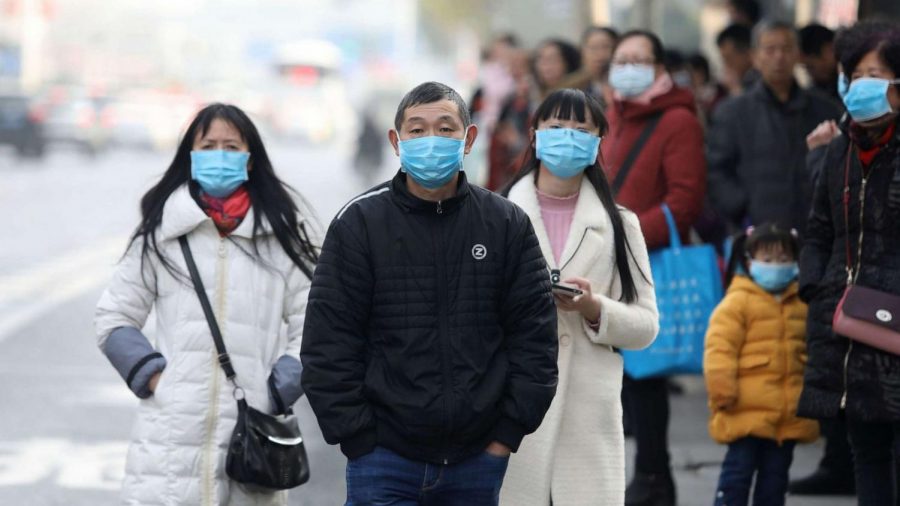Coronavirus
February 17, 2020
As the world celebrated the turn of the decade, a serious health crisis began to explode in Wuhan, China in late December 2019. A variation of the Severe Acute Respiratory Syndrome (SARS), named the Coronavirus began to infect a large population in Wuhan. Scientist Leo Poon a virologist at the School of Public Health at The University of Hong Kong stated in an interview with CNN, “What we know is it causes pneumonia and then doesn’t respond to antibiotic treatment, which is not surprising, but then in terms of mortality, SARS kills 10% of the individuals.” The virus is believed to be derived due to “zoonotic circumstances” meaning that humans contracted the disease from an infected animal. At this time the species of animal is still unknown and is being investigated by scientists.
Since the Coronavirus is an upper respiratory infection, many of the symptoms are similar to that of the common cold such as a cough, sore throat, runny nose and possibly a fever. However, groups that have weakened immune systems such as young children and the elderly can derive more intense symptoms such as bronchitis or pneumonia.
The question on everyone’s mind remains should Stetson students be concerned about the virus affecting them on campus? “I’m pretty nervous about it eventually coming to Florida after seeing the impacts of it in China,” states Freshman Isie Hale. Although it seems to be a wide scale national travel problem, the answer is no. World health experts are already taking measures to prevent the large scale spread of the virus, including travel sanctions out of infected parts of China and quarantining those infected in other parts of the world such as America and the UK. Many scientists actually urge the general American population to be more concerned with the spread of the common cold this season, as it has already been estimated that 10,000 people have died and 180,000 people have been hospitalized during the current flu season, in a preliminary estimates report from the Center for Disease Control. The Stetson WELL Team encourages all students to follow the typical flu prevention steps such as frequently washing your hands, covering your mouth if you cough or sneeze, and utilizing the hand sanitizer dispensers around campus.
Stetson students studying abroad in Asia should not be concerned as to the impact on their trip. Dr. Jimenez who is facilitating the Stetson study abroad in Japan states, “Anyone who is studying abroad [in Japan] are third party providers that guide study abroad programs that have safety and medical protocols in place to ensure the wellbeing of the students that travel abroad.”








